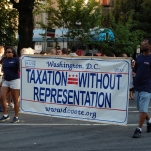Crisis pushes Venezuelan women to sell sex in Colombia
CUCUTA, Colombia — It’s Friday night in this bustling frontier town near the Venezuelan border, and Colombian men are loosening their collars—and their belts—at the “Colegas” brothel.
Inside this darkened den, scantily-clad women in fishnet and tight tops slink amid the frenzied strobe lights to strike up conversations in rapid-fire Spanish that quickly betrays their foreign accent.
“Most of the ones working here are Venezuelans,” a waiter tells us after we sat down at a small table and ordered a couple of beers.
Cucuta has long been a busy border town, thriving on a black market of smuggled goods from Venezuela. But not everything for sale is merchandise. These days, prostitution—which is not illegal in Colombia— is big business along the border. And many of the sex workers are Venezuelans who pop over for a quick buck—something that’s in high demand on their side of the bridge.
Most of the visiting sex workers stay in Colombia for only a few days, pulling in a purse full of Colombian pesos before returning home. Many come back for more.
Their border shuffle is the latest sign of Venezuela’s growing economic crisis, and the desperation it has caused among people trying to get by.
“There’s nothing to do in Venezuela,” said Alondra, a Venezuelan sex worker in her thirties who spends half her time Cucuta and says she has no job in her hometown of Merida. “What we have there is a dictatorship,” she said over a beer.
At “Colegas,” the music shifts from vallenato to reggaeton, as a curvaceous woman in a sleeveless jean dress joins our table. Her working name is “Jennifer,” and in her “regular life” she’s an accountant from San Cristobal, a Venezuelan city 30 miles east of Cucuta.
Jennifer, 21, said that sex work in Colombia provides the income she needs to raise her two-year-old son.
-

-

-

-

-

-

-

-

-

-

-

-

-

-

-

-

-

-

-

-

-

-

-

-

-

-

-

-

-

-

-

-

-

-

-

-

-

-

-

-

-

-

-

-

-

-

-

-

-

-

-

-

-

-

-

-

-

-

-

-

-

-

-

-

-

-

-

-

-

-

-

-

-

-

-

-

-

-

-

-

-

-

-

-

-

-

-

-

-

-

-

-

-

-

-

-

-

-

-

-

-

-

-

-

-

-

-

-









































































































